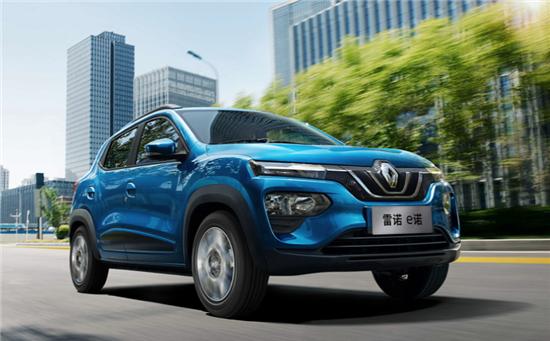Renault CEO Luca de Meo recently said he was tired of the company's sluggish business in the Chinese market and was willing to tear up the previous plan to turn things around with the alliance.
"We are working hard to clean up the instability of our partners." Speaking about Renault's business in China, Luca de Mayo said it could take years for the company to complete a project that is innovative enough to take a place in the world's largest automotive market.
Renault CEO Luca de Meo recently said he was tired of the company's sluggish business in the Chinese market and was willing to tear up the previous plan to turn things around with the alliance.

Image source: Screenshot of Renault China's official website
In May 2020, the Renault-Nissan-Mitsubishi Alliance released a "leader-follower" strategy, in which the three parties will ensure that the roles of each brand are divided between leaders and followers, and if necessary, combined production, thereby improving competitiveness and sharing resources.
According to the plan, Nissan Motor will play a leading role in The Japan, China and North American markets, Renault Group will shift its focus to Markets such as Europe, Russia, North Africa and South America, and Mitsubishi will focus on Southeast Asia and Oceania. However, in order to reverse the dismal situation in the Chinese market, Luca de Mayo turned to the outside of the alliance for help and established a partnership with Geely Holding Group to sell hybrid vehicles in markets including China.
Geely, an automaker that controls Volvo and has an equity stake in Daimler, geely announced a partnership with Renault in 2021, suggesting that the relationship between the Renault-Nissan-Mitsubishi alliance remains fragile. Although Renault and Nissan plan to hold a press conference on January 27 to announce new cooperation projects, businesses involving the Chinese market are in a lower position.
According to people familiar with the matter, Renault's negotiations with Geely reached a preliminary agreement last August, but Nissan was not involved. "Although Renault and Nissan have previously collaborated in areas such as R&D and human resources, cooperation and communication have decreased." A person who did not want to be named said.
Under the framework agreement, Geely will help Renault sell hybrid vehicles in China; conversely, Renault will assist Geely in entering the Korean market through its subsidiary, Lynk & Co. Geely is China's largest private automotive group; Renault has been in a joint venture with Samsung For more than 20 years.
"The alliance will remain a strategic partnership at all times, and we have been developing several new technologies for electrification, including platforms, electric powertrains and batteries within the alliance." Makoto Uchida, chief executive of Nissan, said. "We have successfully achieved 21 years of cooperation and synergy. That spirit and mentality will continue, and that momentum must be strengthened. ”
In 2021, Renault's cumulative sales in the Chinese market were only 19,229 vehicles, and its market share fell to 0.08%. According to nissan motor vehicles, sales in the Chinese market fell 5.2% to 1.38 million units. "Nissan failed to save us," said Luca de Mayo.
Renault's partners in the Chinese market have been volatile over the past few years. In 2020, Renault withdrew from its joint venture with Dongfeng Motor to focus on commercial vehicles and electric vehicles; in December last year, the commercial vehicle joint venture formed by Renault and Brilliance Automotive Group was unable to meet its financial obligations and started restructuring. In addition, Renault signed a production agreement with Nissan to export pure electric models to Europe, Dacia Spring, and formed an electric vehicle joint venture with Jiangling Motors.
"We're trying to clean up this issue." Speaking about Renault's business in China, Luca de Mayo said it could take years for the company to complete a project that is innovative enough to take a place in the world's largest automotive market. (Compiled by Jiang Zhiwen, China Economic Network)